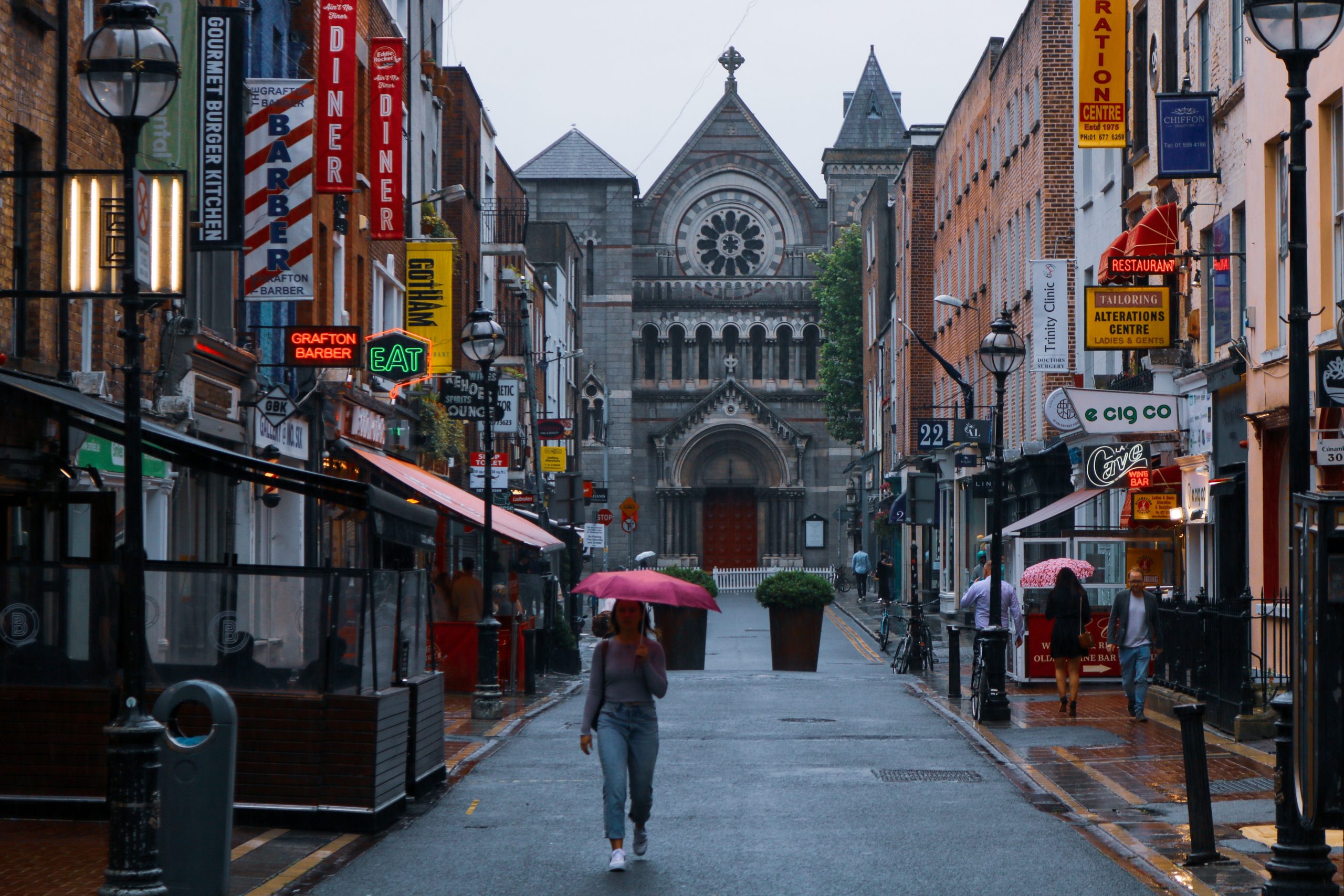As part of the government’s All-Ireland Pollinator Plan 2021-2025 (AIPP), a previously announced initiative to make Dublin greener has recently been concretised by the ex-Lord Mayor, Ms Caroline Conroy, through the erection of “pollinator friendly pots, flowers boxes, and hanging baskets” along Dawson St. As part of a collective endeavour with Jane Stout (Vice President for Biodiversity and Climate Action at Trinity) and businesses in the Dawson Street area, the primary objective of the installations is to reverse the decline in Irish bee populations by providing them with more sustainable foods and energy sources. The plan also includes a campaign to “greenify” Pearse Street, through which the aforementioned campaigners also hope to improve the air quality of both areas, as well as create a biodiversity corridor and, of course, ensure a more agreeable walk through Dublin’s busiest streets. As stated by Jane Stout:
“Safe, active, accessible and sustainable transport options, and more trees and other greenery (like the green wall on Trinity Business School), would benefit the mental and physical health of all of our communities, and contribute to tackling our climate and biodiversity crises.”
Collectives that have elected to take part in this sustainable undertaking include, amongst others: Trinity College, Bread41, Grant Thornton, and William Fry. The list seems to be ever-growing, with many more businesses expected to join in the coming months. Individuals are also contributing, with some constructing bird boxes and feeders for nesting and foraging.
“Bees play an integral part in the maintenance of our ecosystems”
Indeed, according to a recent report by pollinators.ie, more than half of Ireland’s bee species have undergone substantial declines in their numbers since 1980. Currently, 30% of extant species are threatened with extinction, six critically endangered, 14 vulnerable, and two already extinct. Tritely, Bees play an integral part in the maintenance of our ecosystems; they alone contribute to the pollination of approximately 72% of the world’s food crops, and play a key role in global biodiversity, food production, and environmental health. Given that their decline is largely due to the absence of nesting and feeding areas, protecting them and their habitat is unavoidably a vital step towards ensuring the sustainability of our food and health systems. Sites are equally being commissioned for other pollinating insects like butterflies, moths, and beetles – each just as crucial to our environment in their own respective ways.
Though the Dawson Street endeavour is apparently more bee-oriented, both aim to promote a spirit of environmental awareness within the central Dublin area. Such action is widely admired; whilst not exactly the same case may be stated regarding pollution on Dawson Street, Pearse Street regularly records harmful levels of NO2 and particulate matter.
“It would equally serve as a means to further beautify our already magnificent campus”
One may hope to see such an initiative extend to the Trinity College campus, wherein numerous “Green Spots” seem already ripe for confirmation. Indeed, the proposals themselves seem to suggest Trinity as a final destination for the Dawson Street ‘Green pathway’. To launch such an initiative on campus would be massively beneficial; not only would it serve as a personal incentive for many to adopt more sustainable ways of living, but it would equally serve as a means to further beautify our already magnificent campus, ensuring its natural sustenance through the pollination process. Setting up such zones on campus may also allow for scientific research proper to the College’s Science departments to be efficiently conducted in lieu – in a, one may add, rather peculiar environment.






